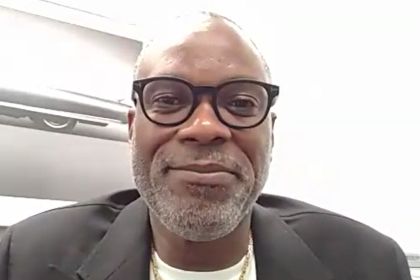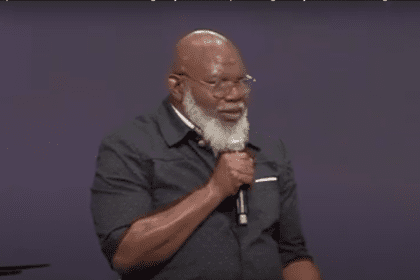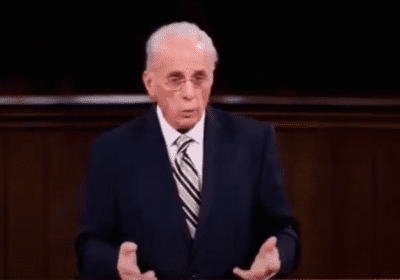For those who grew up in Black churches but found themselves questioning rigid doctrines and exclusionary practices, D. Danyelle Thomas’ new book The Day God Saw Me as Black arrives as a profound validation. The public theologian and Unfit Christian founder challenges generations of religious trauma while offering a path to spiritual wholeness that doesn’t require compromising identity or authenticity.
Reclaiming sacred space
Thomas confronts the complex legacy of the Black church head-on, examining how colonial Christianity’s influence has shaped everything from views on sexuality to gender roles. She connects current church attitudes toward queer and same-gender-loving individuals to deeper historical wounds, tracing these perspectives back to the Trans-Atlantic slave trade’s exploitation of Black bodies and reproduction.
Her analysis speaks directly to those who’ve witnessed how traditional church spaces can both nurture and wound the Black community. The book addresses the particular burden carried by Black women, who have long been the backbone of church communities while being denied full recognition and leadership roles.
A new vision of divine love
Rather than simply critiquing traditional structures, Thomas offers a revolutionary perspective on spirituality that centers Black experiences. She challenges the Eurocentric version of God that many grew up with, instead presenting a divine presence that fully embraces and celebrates Blackness in all its forms.
The book tackles difficult questions about relationships, pleasure and self-worth that many church spaces consider taboo. Thomas argues that true liberation begins with reclaiming ownership of our bodies and experiences — a particularly powerful message for those who’ve felt fragmented between their faith and their authentic selves.
Building better communities
While acknowledging the historical importance of the Black church, Thomas envisions a new kind of spiritual community. She describes spaces where care and support flow freely, unburdened by rigid membership requirements or salvation prerequisites. This vision resonates especially with those who value their spiritual heritage but seek more inclusive and affirming ways to express their faith.
The book offers practical guidance for maintaining spiritual connections while setting healthy boundaries with traditional religious spaces. It’s a road map for those seeking to heal from religious trauma while preserving their relationship with God.
Through personal stories and theological insights, Thomas demonstrates how embracing our complete selves — including aspects that traditional churches might reject — can lead to deeper, more authentic spiritual connections. Her message speaks to everyone who has ever felt they had to choose between their faith and their truth.















